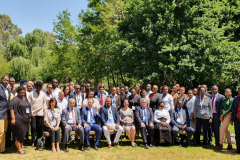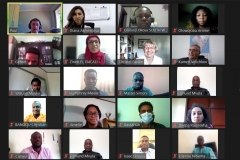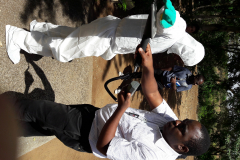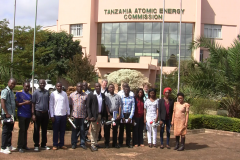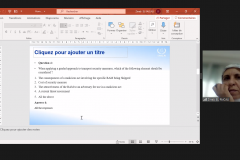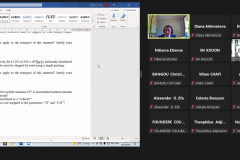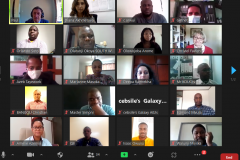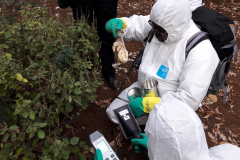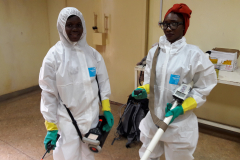The Regional Workshop on the Emergency response plans (Task 2.4 of the CoE Project 60) took place as planned from 31 July to 3 August 2018. This event was organized by the Contractor ENCO and with a support by the Kenyan NFP, Kenyan organizations participating in the P 60 as well as the CoE regional secretariat, HoS and the Regional coordinator.
The first day of the WS was devoted to presentations by the representatives of the Partner countries on the progress in the development of the national emergency response plans for radiological incidents. Particular emphasis was placed on the correlation of these plans with the national all-hazards and/or CBRN response plans.
In course of the Workshop, it was found that most Partner countries have drafts of the National radiological response plans, developed to a different stage of completeness. Unfortunately, most of national plans seems to be focused on the response to a radiological safety events ( e.g. malfunction, accident) but not for a security related events (e.g. a radiological dispersion device- RDD and similar). While in some cases the response and recovery activities might be comparable, this is not the case in all events.
Keeping in mind that none of the emergency response plans could be implemented without the appropriate standard operating procedures describing in more details the practical implementation of the Emergency plans, ENCO devoted some of the presentations and discussions specifically on this theme.
The second day of the WS was mainly dedicated to presentations and discussions of the contents and coordination of the national all-hazards, CBRN and radiological emergency response plans. It was found that only in two Partner countries (where the CBRN response plans were developed and approved in frame of the CoE Project 17), the Radiological response plans are logically coordinated with the CBRN response plans. In the other Partner countries there have been no CBRN response plan yet.
The last two days of the WS, the participants were guided in performing the gap analysis of their national Radiological response plans, using the criteria defined by the Outlines of a generic Radiological response plan specially prepared by ENCO. The Outlines reflected the requirements to the radiological emergency response as established in the IAEA guides and standards and good EU/international practices. The GENERIC Outlines were structured in a way to consider the coordination and interfaces with the all hazards/CBRN response plans.
For the Partner countries where no draft Radiological response plans existed at the time of the Workshop, their representatives were instructed and guided in the preparation of initial drafts of such plans, using the Outlines developed by ENCO. Such the approach was very much appreciated by the participants. Upon returning to their home countries, the participants will continue the development, eventually resulting in advanced drafts of the Radiological response plans for their countries. Those will then be reviewed by ENCO experts, and finalized.
Such approach was selected to speed up the drafting process and get a visible practical result by the end of the Project. To facilitate this process and obtain practical results, the participants for the WS were selected in a way to assure that (some) background knowledge and involvement in the development of the national response plans was already available.. The participants were working by groups and were focusing on their own country. They were guided during all the phases of the WS/exercise by ENCO facilitators.
It was agreed that, in course of the project, the ENCO experts and participants will continue communications to complete the drafts of the response plans. It is planned that during the next Expert Missions in the partner countries, the ENCO experts will review the draft radiological response plans and advise on their completions.


